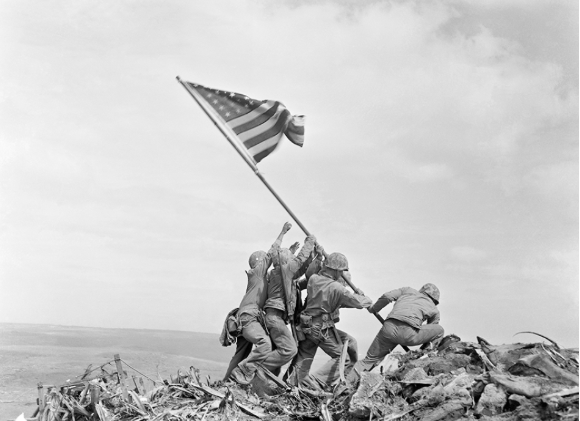
UPDATE:
Some of the Smithsonian exhibits, programming and artwork, the White House considers “objectionable,” according to the New York Times:
• The promotion of homosexuality by hanging a pride flag.
• Overemphasizing Benjamin Franklin’s relationship to slavery in its programming.
• Promoting open borders by depicting migrants watching fireworks “through an opening in the U.S.-Mexico border wall.”
All this, of course, in addition to the objection that the Smithsonian focuses too much on “how bad Slavery was.”
Original Post:
In a Times Op-Ed 15 years ago, “Why U.S. troops deserve to be called heroes,” I strongly disputed the contention of a retired U.S. Air Force officer that collectively calling our service members “heroes” cheapens real acts of heroism and gives a pass to soldiers who commit atrocities.
At the time — one year away from the end of the Iraq War and nine years into the Afghanistan War — I admitted that I was “one of those misguided people who, when writing about our military men and women slugging it out in Iraq and Afghanistan – engaged in combat, just trying not to get killed or maimed by an improvised explosive device or just driving a truck with supplies across the desert – instinctively and invariably refers to them as heroes.”
Fifteen years later, I can see how some would think that the term “hero” – even in a military context — is sometimes used too generously and how such copious use could indeed detract from the “real meaning” of the term.
Yet, when one uses the phrase “war hero,” there is no quibbling about its meaning, there are no “alternative facts.”
One definition of “war hero”: “Someone who has shown exceptional bravery, strength, and character in time of war or military conflict.”
There are other definitions, but they all contain one or more of the following qualities: courage, selflessness, sacrifice, character, honor, bravery…in time of war or conflict.
While the true meaning of “war hero” can never be altered, there can be attempts to trivialize it.
Such just occurred when the Commander in Chief, a man who should know better and a man who has never worn our nation’s uniform, suggested that he is a war hero.
It is not the first time that Mr. Trump displays his — let’s be charitable — “misunderstanding” of what a war hero is.
For example, during a July 2015 campaign event in Iowa, referring to then-Lt. Commander John McCain’s over-five-year captivity in North Vietnam, Trump said, “He’s not a war hero. He’s a war hero because he was captured. I like people that weren’t captured.”
Referring to this episode, Karl Marlantes* writes in “What Makes a War Hero,” it is not the bad luck of being shot down and taken prisoner that makes McCain a war hero. He continues:
McCain is a hero because of the way he conducted himself while a prisoner. He endured torture that he could have avoided by telling secrets that would have hurt his fellow aviators. He refused early release, which his captors offered because McCain’s father was a top Navy commander…he fits my definition of a hero.
The President’s comments on war heroes are as gratuitous as his recent insinuation that the Smithsonian Institution is “out of control” because the venerable institution focuses too much on “how bad Slavery was.”
* Karl Marlantes, a Marine Corps first lieutenant in Vietnam, received the Navy Cross for “extraordinary heroism” while leading an assault on enemy bunkers.
















